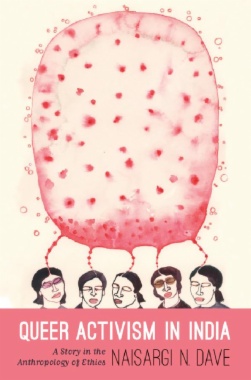In Queer Activism in India, Naisargi Dave examines the formation of lesbian communities in India from the 1980s to the early 2000s. Based on ethnographic fieldwork conducted with activist organizations in Delhi, a body of letters written by lesbian women, and research with lesbian communities and queer activist groups across the country, Dave studies the everyday practices that constitute queer activism in India.
Dave argues that activism is an ethical practice comprised of critique, invention, and relational practice. Her analysis investigates the relationship between the ethics of activism and the existing social norms and conditions from which activism emerges. Through her study of different networks and institutions, Dave documents how activism oscillates between the potential for new social arrangements and the questions that arise once the activists' goals have been accomplished. Dave's book addresses a relevant and timely phenomenon and makes an important contribution to the anthropology of queer communities, social movements, affect, and ethics.
- Contents
- Acknowledgments
- Introduction
- 1. Rendering Real the Imagined
- 2. Within Limits, Freedom
- 3. Virtuous Women, Radical Ethics, and New Regimes of Value
- 4. Public ‘‘Emergence’’
- 5. To Be Lawful, to Be Just
- Appendix. Cast of Organizations
- Notes
- References
- Index

